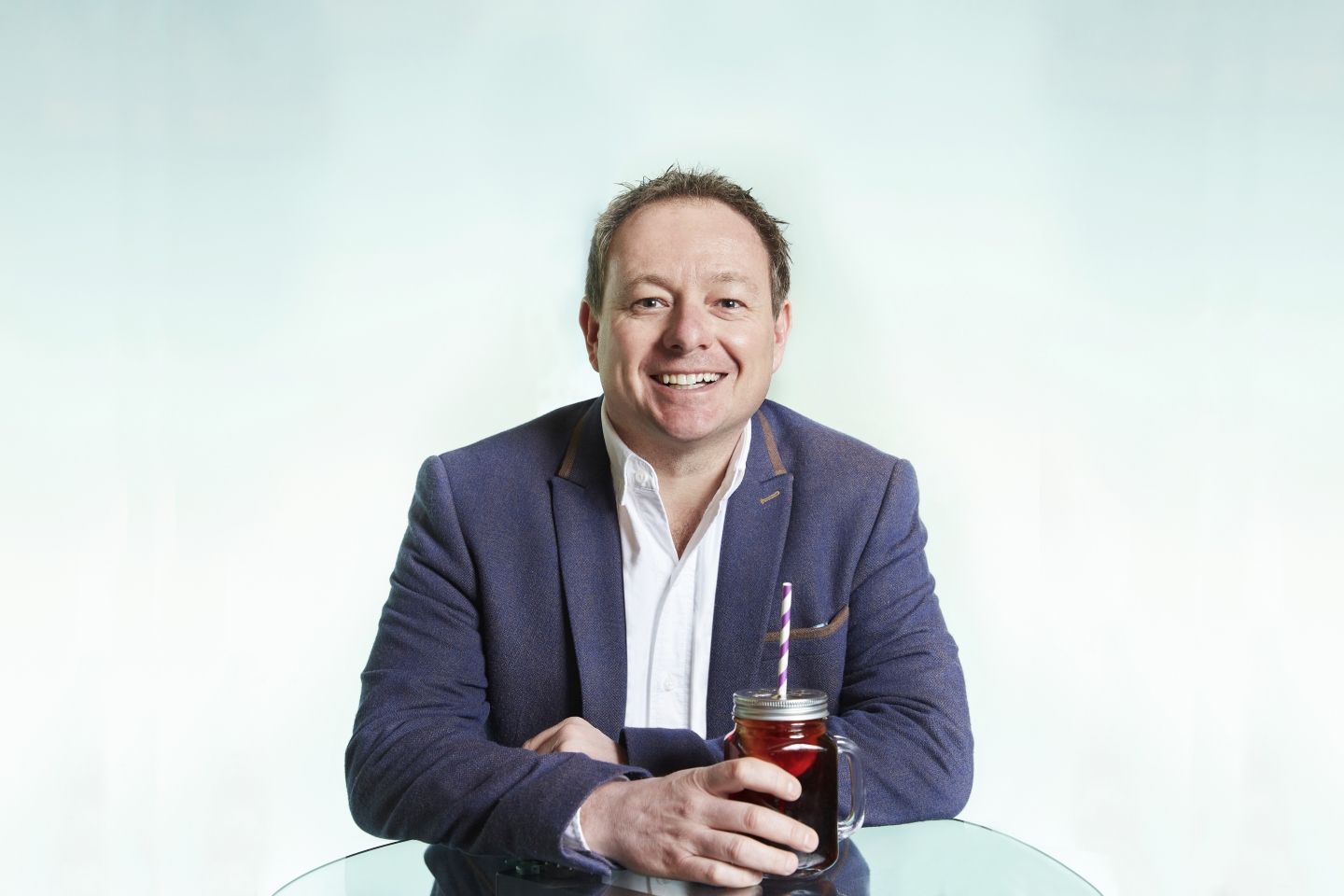
Today, Vimto enjoys strong market presence in over 60 countries, with a £400 million (RM2.3 billion) market cap (Photo: SooPhye)
It might have been a long time coming but Nichols plc believes in doing things at its own pace. Although its flagship brand Vimto has been popular since its establishment 117 years ago in Manchester, England, it only recently entered the Malaysian market; a surprising fact considering we love our sweet drinks and have fervently embraced Ribena, another British brand (the blackberry squash was originally created by Bristol-based HW Carter before being acquired by GlaxoSmithKline, which then divested it to Japanese beverage conglomerate Suntory in 2013), as well as a multitude of other syrups and cordials for decades.
In 1908 — the same year motoring baron Henry Ford started rolling out his Model T cars across the pond and, even further afield, two-year-old Aisin Gioro Puyi ascended to the Dragon Throne of imperial China — John Noel Nichols created Vimto as a health drink, a pick-me-up that imbued consumers with literal vim and vigour. Originally christened Vimtonic, its name today remains a portmanteau of those words.
The recipe is, naturally, a jealously-guarded industrial secret — known to only four people in the world at any one time — although it has long been established that it is a blend of three fruits (grapes, raspberries and blackcurrants), herbs and spices. Although John Noel started out as a stockbroker’s clerk, he believed in the efficacy of his product and began peddling it full-time as a medicinal tonic to shops while still in his mid-twenties. To worldwide success.
vimto-is-born.jpg
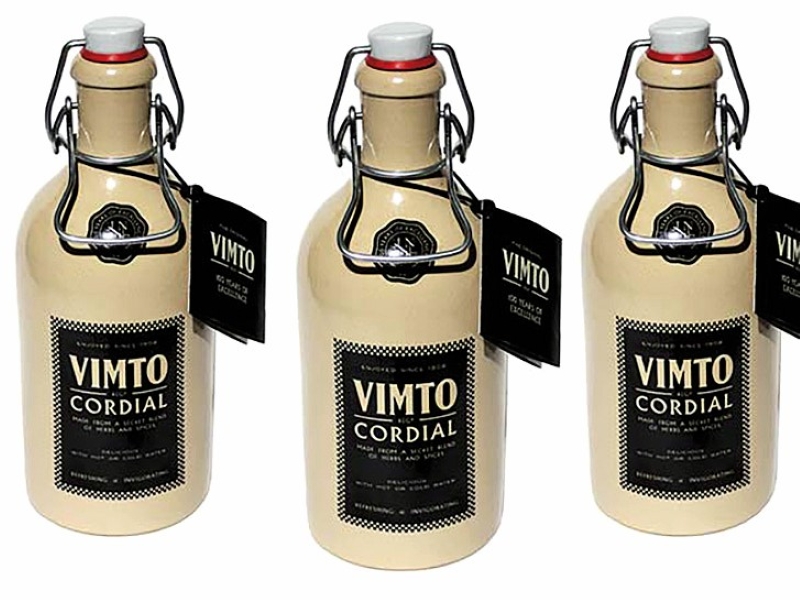
Fasting month phenomenon
Today, Vimto enjoys strong market presence in over 60 countries, with a £400 million (RM2.3 billion) market cap. It also recently began its Southeast Asian expansion campaign, with Malaysia earmarked as the gateway. Stopping by Kuala Lumpur on a whirlwind visit, scion Matthew Nichols (Matt to most), John Noel’s great-grandson, took some time out to talk shop. The international commercial director of Nichols plc and a member of its senior leadership team is proudly part of the 300-strong company headquartered in Newton-le-Willows, a town in Merseyside, England. Football fans would be interested to know it is equidistant to Liverpool and Manchester.
“We actually began exporting [Vimto] very early on in the business,” says Matt. The drink’s first shipment headed for British Guyana in 1919, followed a few years after by India and Burma (now Myanmar). Despite its early foray into Asia, Vimto made landfall in Malaysia only in the fourth quarter of 2024, while aggressive marketing and publicity campaigns kicked off this February.
The timing could not be better, though. For those not in the know, the drink is a veritable cultural phenomenon in the Middle East, synonymous with the Khaleeji tradition of breaking fast, where an approximate 25 million bottles of cordial are sold annually. Visit any of the Arab states of the Persian Gulf, particularly and especially during the holy month of Ramadan, and you will realise there is only one preferred bevvy to quaff the minute the sun sets — and that’s Vimto.
“India was one of our very first international markets. At some point, consumers took the product with them to the Middle East and introduced it to a family-run imports business based in Bahrain,” says Matt.
The company in question? The mighty Aujan Group (formerly Abdulla Aujan & Brothers), a Saudi conglomerate with a diversified range of businesses, including FMCG, hospitality, real estate and packaging materials. Initially trading in rice and tobacco, Aujan secured the exclusive licence to distribute Vimto in the Middle East in 1928, and grew the brand slowly and steadily until it could build its first beverage manufacturing plant in 1979 in Dammam, Saudi Arabia, where the group is now headquartered.
“The Aujans thought Vimto was perfect for breaking fast with due to its nutritious content, not to mention the fact it is refreshing and tastes so great,” adds Matt with a huge smile. “Almost a hundred years on and millions of gallons later, we are still working with the same family. As you can see, to us, family connections are really important.”
ph-hajoori-sons-van-surat-1933-vim_18_0_5.jpg
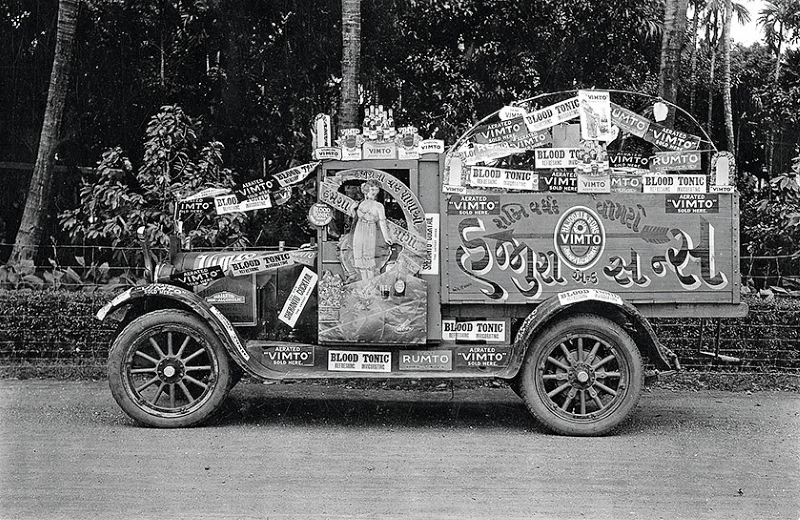
It starts with a sip
Given the inextricable bond Vimto has built in the Middle East, Matt is excited about expanding its footprint regionally. Sweet and fruity, the cordial is expected to do well locally, taking the Malaysian palate into account. “We are very happy to finally be here but we like making sure we do things the right way. We wanted to be sure we had the right partners to work with. Definitely, we want to spend time building [the market] as we are here for the long term.”
In this case, it is Universal NutriBeverage, a 54-year-old veteran in the cordial and juice concentrate sector. “Certainly we see Malaysia as a springboard for growth in Asean. Only by having a really strong brand footprint here can we then look at other markets, be it Indonesia, Vietnam or beyond.”
Product seeding is now top priority for Vimto Malaysia. “We’ve ramped up for Ramadan and are in several outlets, complete with big displays and a nice promotional price,” Matt assures. “Besides social media, we are also doing a lot of sampling activations — in over 500 stores — so people can try our unique taste for themselves, which is very important.” Besides the omnipresent 99 Speedmart, Vimto can also be found at Mydin, Giant and Japanese supermarkets like Isetan, Aeon and even the swanky Seibu Food Hall at The Exchange TRX.
When asked if he is worried about being the newbie in an already-competitive and saturated market, Matt assures that “while there are a few other brands on the cordial market, they are either single-fruit or based on a variety of citrus flavours. Vimto is a unique blend that is different from anything else out there!”
To market, to market
Visionary and full of derring-do, the company harnessed the power of marketing to grow its presence from the get-go. To this day, it continues making a name for itself for witty and clever advertising, being one of the first brands to do so on television (still black and white in those days) and working with great names like renowned cartoonist Herbert Stanley Terry for its show cards. Some might even remember characters like cartoon stick man Purple Ronnie (created in 1997) or the Vimtoad (2014), an amphibian that famously leapt into a shopper’s trolley, stuck out its tongue and cajoled her to try a glass of cordial.
Other cheeky ideas included launching bottled water in 2017, cleverly christened Vim20. “As a relatively small business in beverage industry terms, and comparing ourselves to the global players, we have to be quite strategic — and clever — in our marketing,” Matt points out. “Those very different campaigns you mentioned are what we have become known for in many markets, although the UK’s are probably the most famous. But what the local teams have done in the Middle East, for example, is particularly impressive.”
By impressive, Matt means customisation stations in upscale department stores, which allowed customers to adorn their drink bottles with Swarovski crystals, make them bespoke with personalised initials, and then pack them luxuriously in limited-edition gold and burgundy gift boxes. “Over the years, we’ve done some really strong, fully integrated campaigns across the Middle East through our local partners,” Matt confirms. “In the end, it’s all about tailoring to the individual market. It’s about implementing marketing strategies that complement local cultures and traditions. And this is something we heavily rely on our partners for.”
Those who want a special Vimto souvenir and do not quite wish to spend AED200 (RM240) for a fully-blinged-out bottle can mosey over to Manchester the next time they visit ol’ Blighty. Most Mancunians know about the famous (in the city, anyway) Vimto monument created by sculptor Kerry Morrison, depicting the bottle as well as the fruits and spices used in its production. “You know about that,” laughs Matt. “When my great-grandfather first mixed the secret blend of fruits and spices, it was along a street called Granby Row in the city, now part of the University of Manchester’s grounds. To commemorate the event, we built a Vimto monument made of wood in the 1990s and it’s still there today. You would often see a lot of people milling about, taking their photos with it. In fact, I make it a point to visit myself, whenever I am there. Just weeks ago, I was there taking a selfie in the Manchester rain.”
orignas-rangeshot.jpg
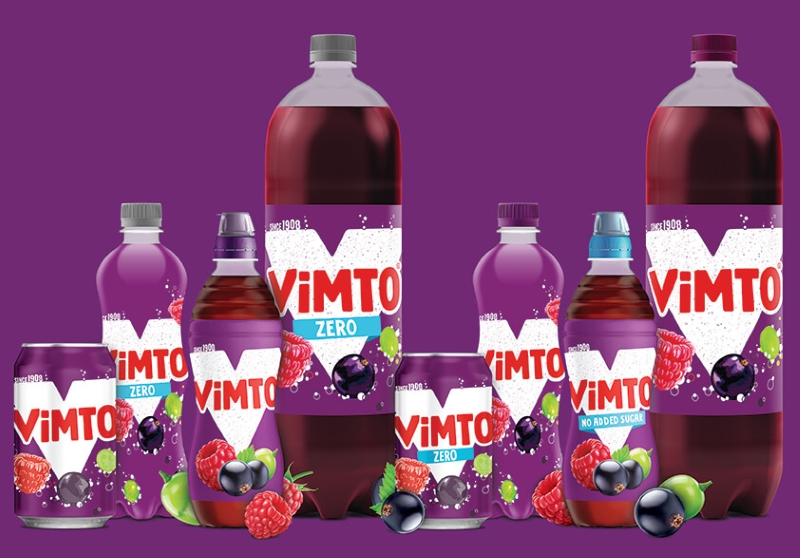
And next, the world
Although Matt manages Nichols plc’s international commerce portfolio, it might surprise people to learn he did not study business or accounting but, in fact, read Japanese at university. “I wanted the challenge of a new language and to learn about Japanese culture,” he shares. “I was exposed to Japanese at school, but really enjoyed learning it as a degree, which also gave me the opportunity to live in Tokyo for a year.” Having chosen to study, not in nearby Manchester but farther north in Edinburgh, Matt offers a localised product comparison: “I guess you could consider Vimto the Irn-Bru of the northwest,” he says, referring to the celebrated rust-coloured carbonated drink hailed as “the other national drink of Scotland”, after whisky.
When asked what his father John (who retired as chairman of Nichols plc board in 2023) thought of his degree choice, Matt lets on how “dad was impressed as it was challenging. In fact, it would have been easier to do something, anything else! I mean, my friends were busy having fun over the weekends while I had to spend all my time in the library, studying hard. But I do like me a challenge!”
This sense of up-for-itness clearly extends to his personal life where any free time is spent on all manner of sport. Summer sees him wakeboarding and waterskiing while winter is spent skiing, snowboarding and indulging in cold water swimming. When asked about the latter, he shares how he picked up the pastime during the Covid-19 pandemic and that it has since become immensely popular with professional athletes due to its plethora of mental and physical benefits.
“My wife and I started cold water swimming as it’s easy for us to dip in the cold British sea all year round,” he chuckles. “It’s not for everyone though as the water hovers between 2°C and 6°C, but is brilliant for focusing the mind. You have to be absolutely in the moment! It’s great for building resilience and, contrary to popular belief, is quite a sociable sport. Now, we have a whole group of us doing it.”
Married to Gemma and father to Seren and Benjamin, Matt makes it a point to head to their holiday home on the coast whenever possible. “It’s small and quiet and the closest town would be Pwllhelli, which, like good Welsh words, is pronounced puh-theh-lee,” he says, laughing. It was also in north Wales that a young Matt got his first taste of hard work and responsibility, working summers in a seaside hotel — making beds and serving breakfast — from the age of 16. “Ah, and one fond childhood memory I probably share with a lot of people across the UK might be of summertime in the garden, where your parents would mix Vimto cordial with lots of ice and water in a jug and serve it to you and your friends while you’re playing.”
_s1a5071a.jpg
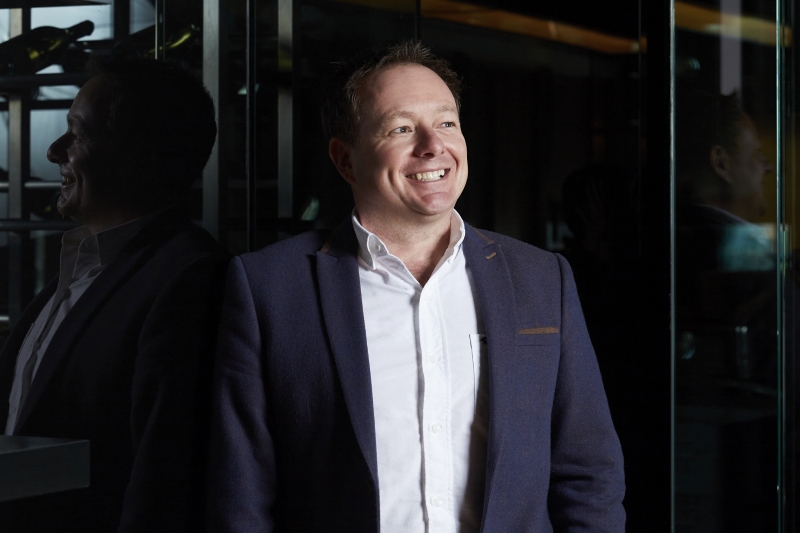
What's ahead
Signing up as a marketing assistant immediately upon graduation at Nichols plc, Matt was quickly dispatched to Africa, where a lot of time was spent building up the business. “The continent was growing extremely fast then,” he recalls. “After, I had the opportunity to manage the Middle East, as well as take responsibility for North America and Europe.”
Despite his obvious Japanophilia, Vimto has yet to enter the Japanese beverage market. “I’m still trying but rest assured we are looking at Asia strongly and this was one of the reasons for my joining the business.” Although he never got to meet his great-grandfather, he does share a few key lessons he learnt along the way. “I think the best piece of advice I got, which remains relevant and applies to many things to this day, would be to be brave and curious. Oh, and maybe take a few calculated risks along the way.”
Right now, what keeps Matt going is the opportunity to travel while forging strong relationships with existing and new Vimto partners. “I think the thing which probably makes us unique as a business remains that family connection. And that’s really important for our local partners, particularly because a lot of them are owner-operated businesses. Most of the relationships I have were built up and nurtured over nearly 20 years. Our biggest trading areas are the Middle East, of which Saudi is the most dominant, and sub-Saharan West Africa, namely Senegal, Cameroon and Guinea. You are talking about decades of working with the same people, that depth of relationship,” he stresses.
“It helps that we do a lot of upfront research, data gathering and due diligence to make sure we partner with the right people. We take our time as it’s really important to us our associates uphold the same values as we do and, you know, do the right things in the right way. But yeah, being able to travel and grow the brand, especially in places you know are challenging environments in which to operate, is a real career highlight for me. And now, it’s time for the region.”
This article first appeared on Mar 17, 2025 in The Edge Malaysia.


